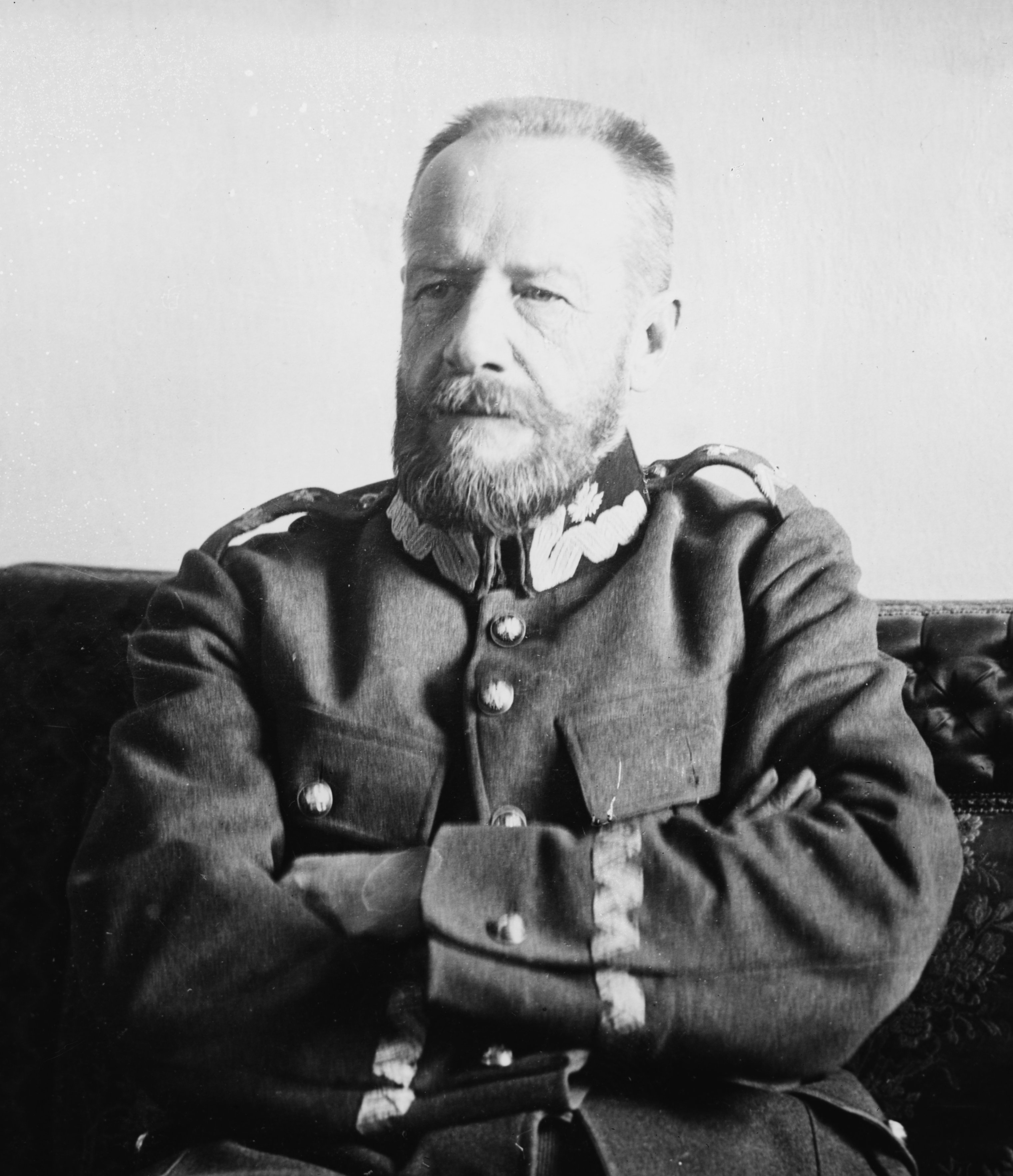- Lucjan Żeligowski
Infobox_President | name=Lucjan Żeligowski
order=Leader of the Republic of Central Lithuania
nationality=Polish

term_start=October 12 ,1920
term_end=March 24 ,1922
predecessor="Part ofLithuania "
successor="Merged intoPoland "
birth_date=birth date|1865|10|17|mf=y
birth_place=Nieśwież , thenRussian Empire , nowBelarus
death_date=death date and age|1947|7|9|1865|10|17|mf=y
death_place=London ,England
spouse=
party=Infobox Military Person
name=Lucjan Żeligowski
born=birth date|1865|10|17|mf=y
died=death date|1947|7|9|mf=y
placeofbirth=Nieśwież ,Russian Empire
placeofdeath=London ,England
allegiance=
serviceyears=from 1885,Russian Army
rank=Generał broni
commands=Front Commander
Head of State ofCentral Lithuania Minister of Military Affairs
battles=Russo-Japanese War , Great War,Polish-Ukrainian War ,Polish-Bolshevik War , Invasion of Poland inWorld War II
awards=
laterwork=Member of Parliament Lucjan Żeligowski (1865-1947), was a Polish
general , and veteran ofWorld War I , thePolish-Soviet War andWorld War II . He is best remembered for his role in theŻeligowski's Mutiny and as head of a short-livedRepublic of Central Lithuania .Biography
Lucjan Żeligowski was born
October 17 ,1865 , in Nieśwież (modern Niaśviž inBelarus ) to Gustaw and Władysława née Traczewska. After graduating from military officers' school in 1885, he joined theRussian Army , where he served at various staff and command posts.He fought in the
Russo-Japanese War of 1904-1905.During the
First World War he served as alieutenant colonel and commanding officer of a Russian rifle regiment.Fighting against the Bolshevists
After the
February Revolution of 1917, Żeligowski became one of the organizers of thePolish Army inRussia . Initially commander of an infantry regiment in the ranks of the Polish 1st Corps, he was quickly promoted and given command over a brigade. In 1918 he started the creation of a Polish unit in the area ofKuban , which eventually became the4th Polish Rifle Division . As part of the Polish Army, his unit fought alongside the Denikin's Whites in theRussian Civil War . In October of the same year he became the Commander in Chief of all the Polish units fighting in Russia.After the outbreak of the
Polish-Bolshevik War and the defeat of Denikin, Żeligowski's unit was ordered to retreat toRomania nBessarabia , where it took part in defence of the border against Bolshevik raids. Finally, in April of 1919, the division was withdrawn to Poland, where it was incorporated into the Polish Army and renamed toPolish 10th Infantry Division .During the war against the Bolshevist Russia, Żeligowski, a personal friend of Polish C-i-C
Józef Piłsudski , was quickly promoted to general and given the command over anoperational group of his name, composed of his 10th division and additional units, mostly of partisan origin. As such, he soon became the commanding officer of the entire "Lithuanian-Belarusian Front", operating in the area ofPolesie and thePinsk Marshes . During the Battle of Warsaw his unit was attached to the 3rd Polish Army and took part in the pursuit of fleeing Red forces and theBattle of the Niemen .Republic of Central Lithuania
In October of 1920, Żeligowski, a native of historical lands of Lithuania, was chosen to command the
1st Lithuanian-Belarusian Infantry Division , composed mainly of P.O.W. members, volunteers and partisans from the territory of modern Belarus and Lithuania. OnOctober 8 ,1920 , after a staged coup, he defected with his unit and took control over the city ofWilno (modern Vilnius, Lithuania) and its area. The coup, named after him, would be remembered as the defining moments of his life. OnOctober 12 he proclaimed independence of the said area asRepublic of Central Lithuania , with Wilno as its capital. Initially a "de facto" military dictator, after the parliamentary elections he passed his powers to the newly-elected parliament, which in turn decided to submit the area toPoland .Later life
After the annexation of Central Lithuania to Poland, Żeligowski continued his service in the Polish Army. Promoted to
three star general in 1923, he served as an "army inspector", or a commander of a military district ofWarsaw . In 1925 he also became the PolishMinister of Military Affairs . Ousted by Piłsudski'scoup d'état (theMay Coup ), he was soon returned to the post. He retired the following year and settled in his family manor in Andrzejewo near Wilno.In 1930 he published a book containing his memoirs of the Polish-Bolshevik War named "War of 1920: Memories and thoughts" ("Wojna w roku 1920. Wspomnienia i rozważania"). He also wrote numerous articles on the conflicts of early 20th century for a variety of Polish newspapers. In 1935 he was elected a
member of parliament and remained in theSejm until 1939.World War II
During the Invasion of Poland in 1939, Żeligowski volunteered for the
Polish Army , but was not accepted due to his old age (he was 74 at that time) and poor health. Nevertheless, he served as an advisor to the command of the Polish southern front. After the Polish defeat, he evaded being captured by the Germans and the Soviets and managed to reach France, where he joined thePolish Government in Exile . An active member of the "Polish National Council", an advisory body, he escaped toLondon after the French defeat in 1940.After the end of
Second World War he declared he would return to Poland, but he suddenly died onJuly 9 ,1947 , in London. His body was returned to Poland, and Żeligowski was buried in thePowązki Cemetery in Warszawa. He was an honorary citizen of Warszawa.ee also
*
Central Lithuania
*History of Poland
Wikimedia Foundation. 2010.
